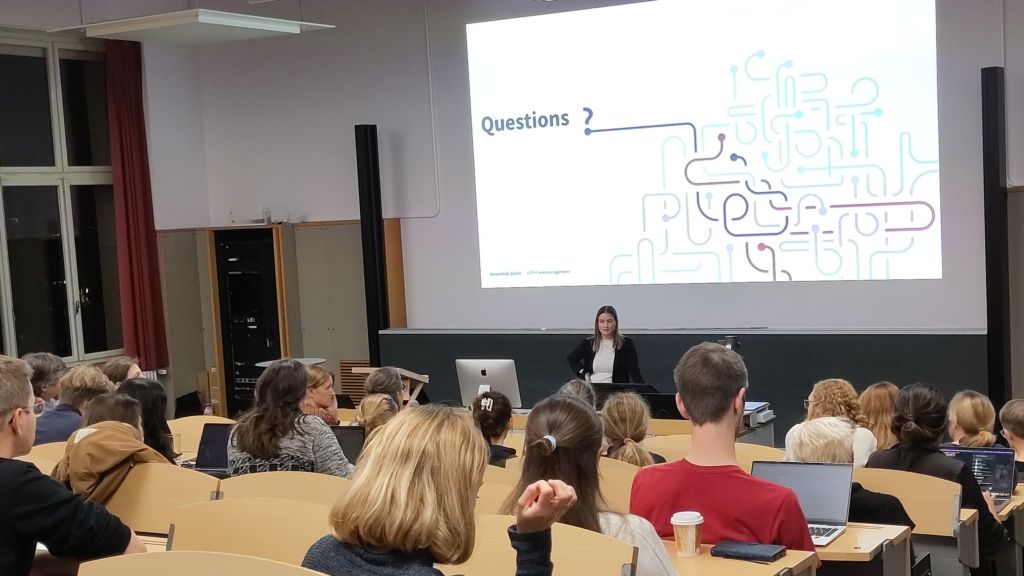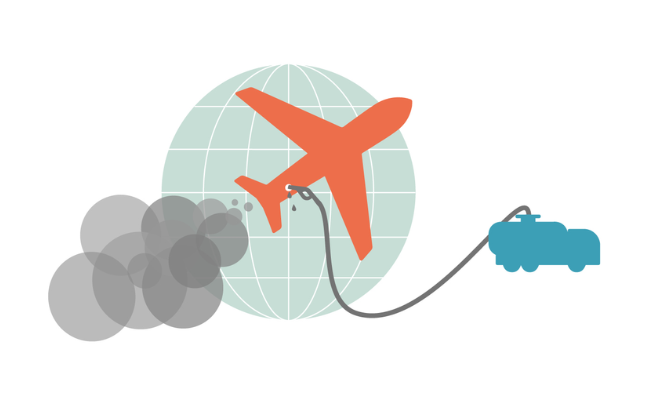Reducing flight-related emissions through virtual conferences?
The University of Zurich is actively and consistently committed to the global goal of sustainable development. The Implementation Strategy 2030 for the Sustainability Policy sets the goal of achieving climate neutrality by 2030.
Air travel causes a large share of greenhouse gas (GHG) emissions in UZH’s regular operations. Before the Covid-19 pandemic, this share was more than 35 percent (2018/2019) of UZH’s total GHG emissions. For this reason, the Executive Board of the University has decided that emissions from air travel must not increase to more than 60 percent in 2022, compared to the pre-pandemic level of 2018/19 – which was reached. Furthermore, emissions must decrease by 3 percent annually until 2030, resulting in an overall reduction of 53 percent.
Besides the measures taken by faculties and units of UZH to reduce flight-related GHG emissions, the constructive engagement of UZH’s employees is important to achieve climate neutrality – and UZH staff is engaged. This was evident from over 80 registrations for the information event “Smarter than flying – How to organize successful virtual conferences”, held in November 2023.

Virtual conferences have become increasingly important for the reduction of flight-related GHG emissions. In addition, virtual conferences have other advantages, such as generally lower costs (e. g. participation fees, travel to and from the event, accommodation, meals omit), greater accessibility and inclusivity, reduced overall time necessary for participation, less stress with travelling and jet lag and the fast availability of recordings afterwards. However, in order to become a successful networking event, virtual conferences must be seen and planned as their own form of interaction. If only a face-to-face event is transferred to the digital setting, this often leads not only to frustration but also to technical problems and a decline in attention and participation.
Thus, at the information event three lectures by experts examined virtual conferences from different perspectives. Pascale Hohl (Head of Event Management UZH) showed current trends and common tools and explained what resources UZH can offer for the planning and execution of virtual conferences. Professor Michael Zemp (Director World Glacier Monitoring Service, Geographical Institute UZH) presented best practice examples of hybrid and virtual conferences he organized and/or took part in. Ariane Wenger (PhD student, Td-Lab ETHZ) provided insights into research results on perceived advantages and disadvantages of virtual conferences as well as on networking efficacy during virtual conferences. The slides and audio recording can be found online on the website of the UZH Sustainability Team.
